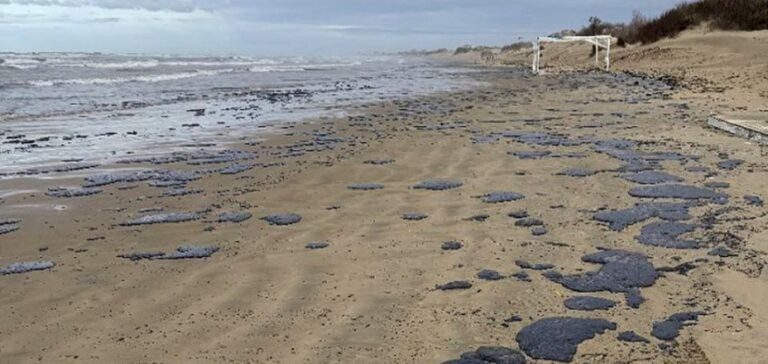A significant oil spill has been reported in Russia following the sinking of the Volgoneft-212 and Volgoneft-239 oil tankers on December 15 in the Kerch Strait, which connects the Black Sea to the Sea of Azov. According to Alexander Kozlov, Russia’s Minister of Natural Resources, up to 200,000 tons of soil could be contaminated.
The tankers were transporting approximately 9,200 tons of fuel oil, 40% of which is estimated to have leaked, according to local authorities. These hydrocarbons have polluted the beaches of the Krasnodar region, notably in Anapa, a major tourist site. Cleanup efforts are currently mobilizing volunteers and local teams to limit the damage.
A threat to local ecosystems
Krasnodar Governor Veniamin Kondratiev emphasized that marine pollution remains the primary source of hydrocarbons being transported to the shores. He also called for swift action at sea to prevent further spread.
This oil spill poses a direct threat to the biodiversity of the Black Sea. Dolphins have been found dead in the affected areas, while oil-covered birds are receiving emergency care from volunteers. The economic and ecological impacts are estimated to be very high, particularly for tourism and local industries.
Management under political scrutiny
President Vladimir Putin described the incident as an “ecological catastrophe.” Local authorities are under pressure to mitigate the economic repercussions, as the region heavily relies on tourism and maritime transport sectors. The annexed Crimea, near the affected areas, is particularly vulnerable to the extent of the pollution.
Discussions are ongoing to mobilize additional resources to prevent this crisis from worsening, while political opposition has criticized the Russian authorities’ handling of the incident.






















